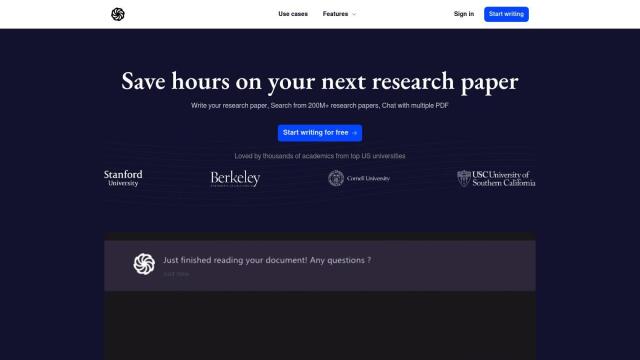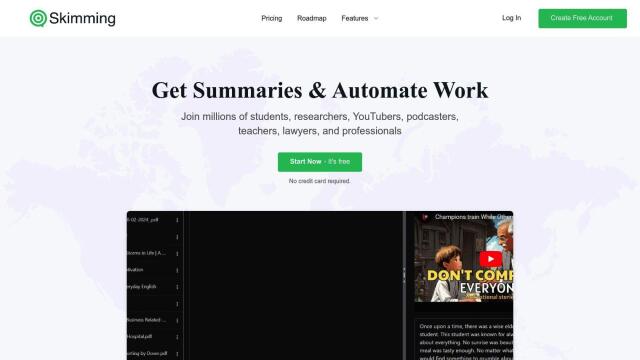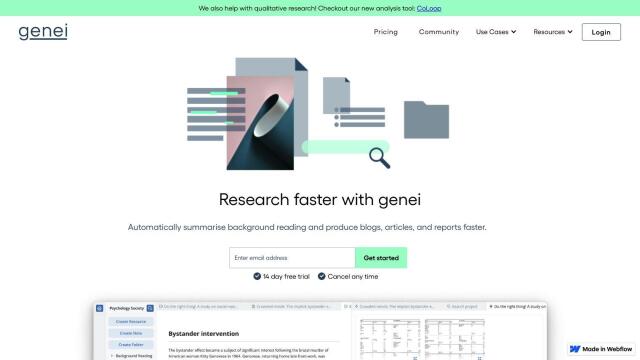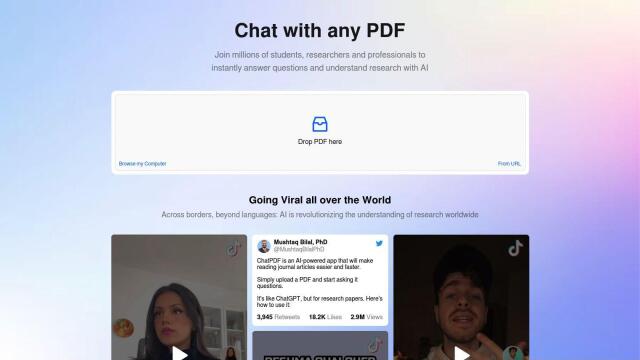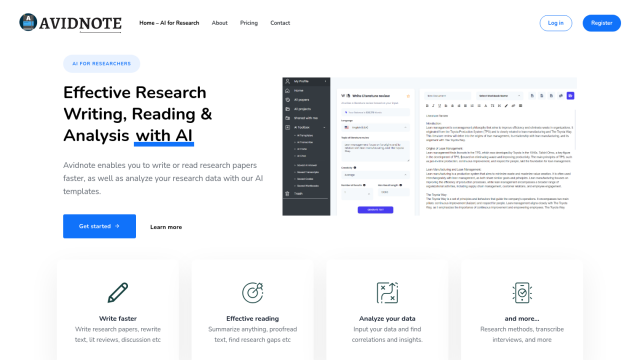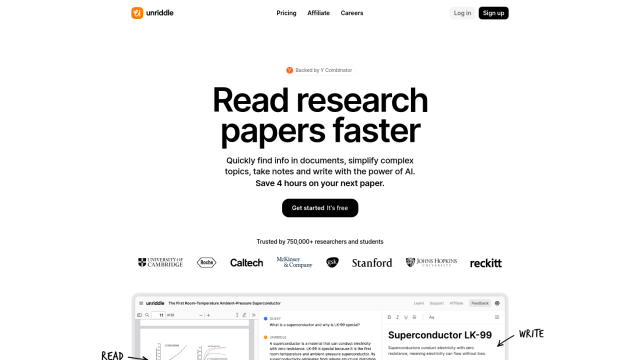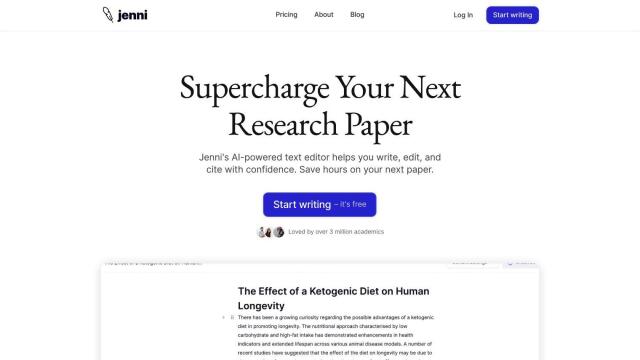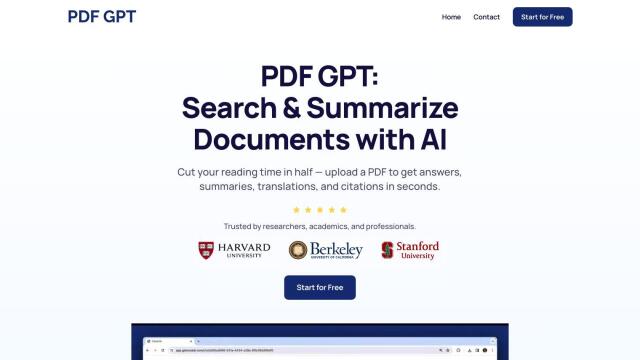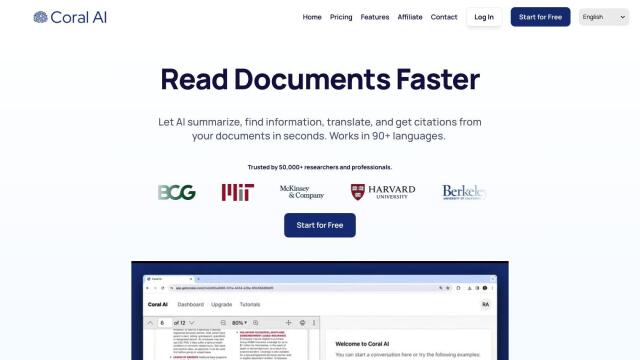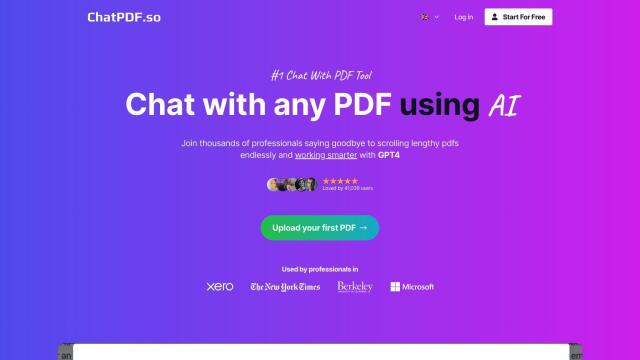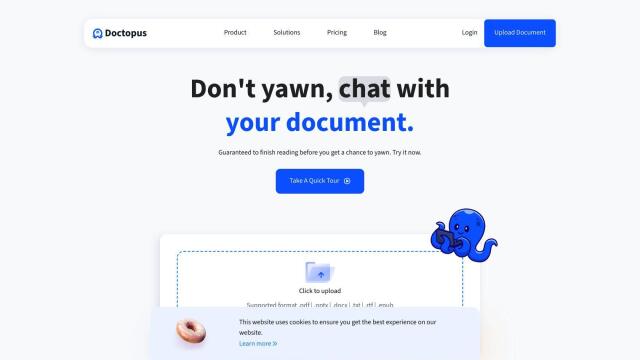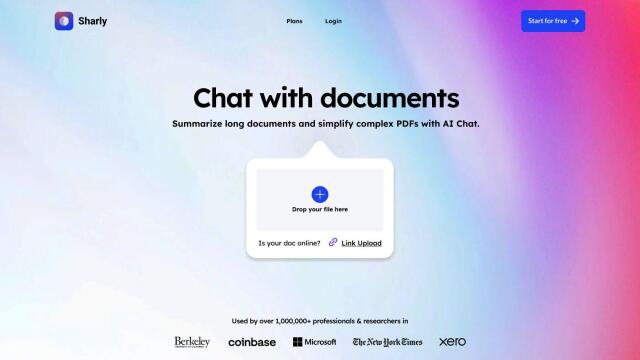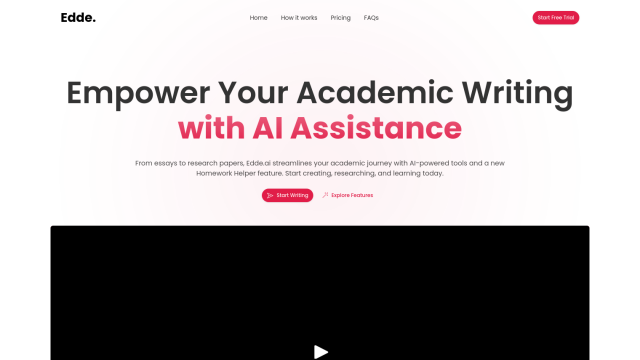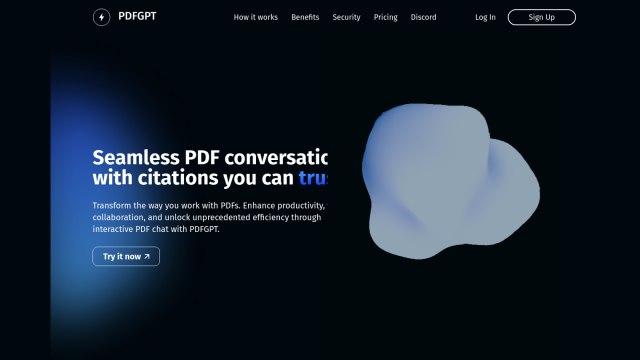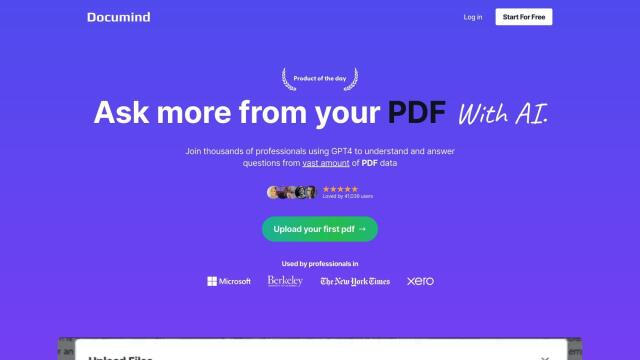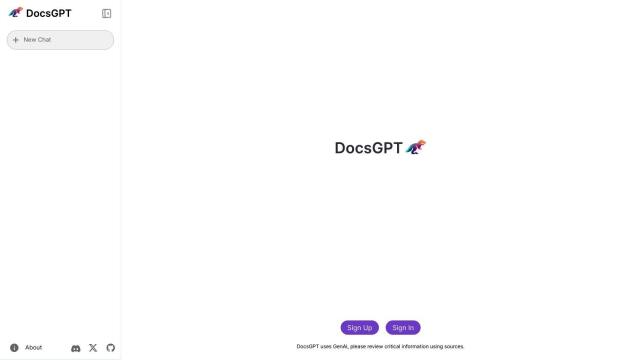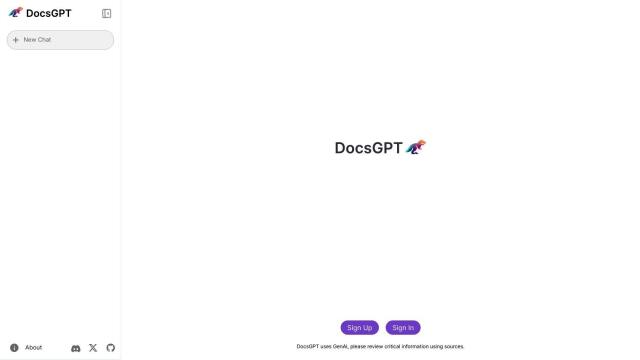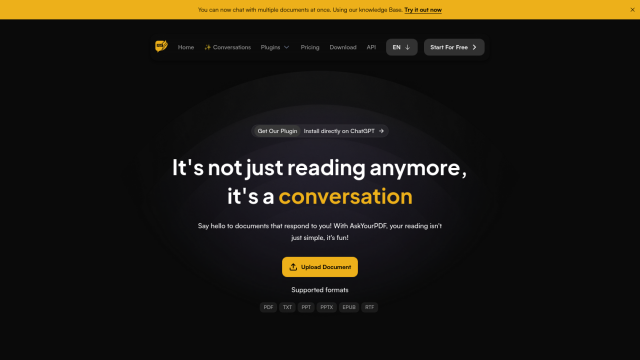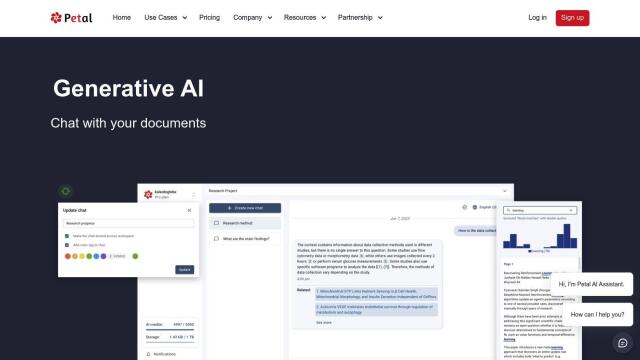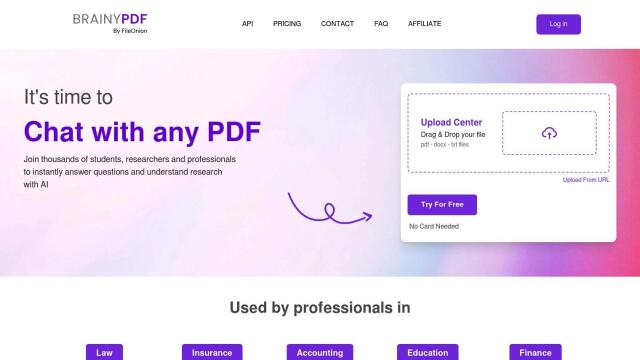Question: Can you recommend a document editor that integrates with external sources like Wikipedia and arXiv for research purposes?

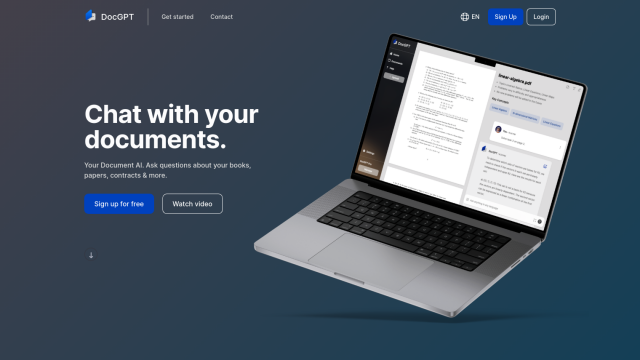
DocGPT
If you need a document editor that can draw information from outside sources like Wikipedia and arXiv for research, DocGPT is a good option. It's a PDF editor with generative AI abilities to help you analyze and create documents. By tapping into outside sources for quicker and more authoritative content, DocGPT can let you ask questions about your documents and get answers with page numbers. That's good for students and professionals who need to work with documents like contracts, research papers and essays.


Elicit
Another tool worth a look is Elicit, an AI research assistant that's designed to help you quickly locate, summarize and extract information from more than 125 million research papers. It can be useful for empirical subjects like biomedicine and machine learning, for example speeding up literature reviews, finding new papers and automating systematic reviews. Elicit comes in several versions, including a free basic option, so it should be useful for different needs and budgets.

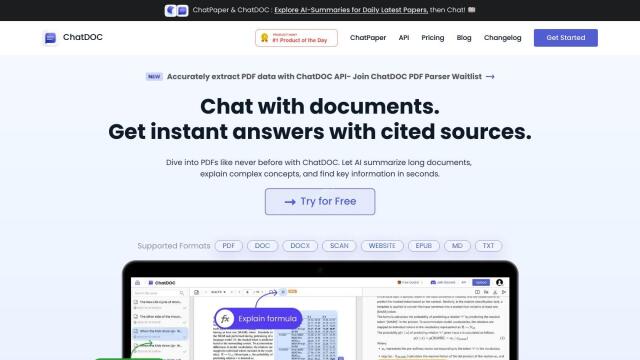
ChatDOC
For a broader range of documents and document-source integrations, ChatDOC uses AI to retrieve and analyze information. It can handle many document formats, including PDF, DOCX, EPUB and more. ChatDOC can provide immediate answers to questions, AI analysis and explanations of math formulas, which can be useful for students, professionals and businesses. The system also comes with a browser extension for easy uploads and encrypted data transfer.

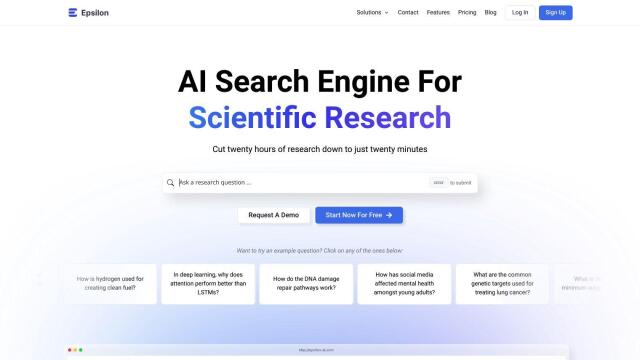
Epsilon
Last, Epsilon is an AI search engine that speeds up scientific discovery by summarizing information, synthesizing insights and summarizing academic papers. With features like Investigate, Search, Validate and Synthesize, more than 30,000 researchers use Epsilon. It's available in several pricing tiers, from students to companies, so it can be useful for a wide range of people and organizations.

